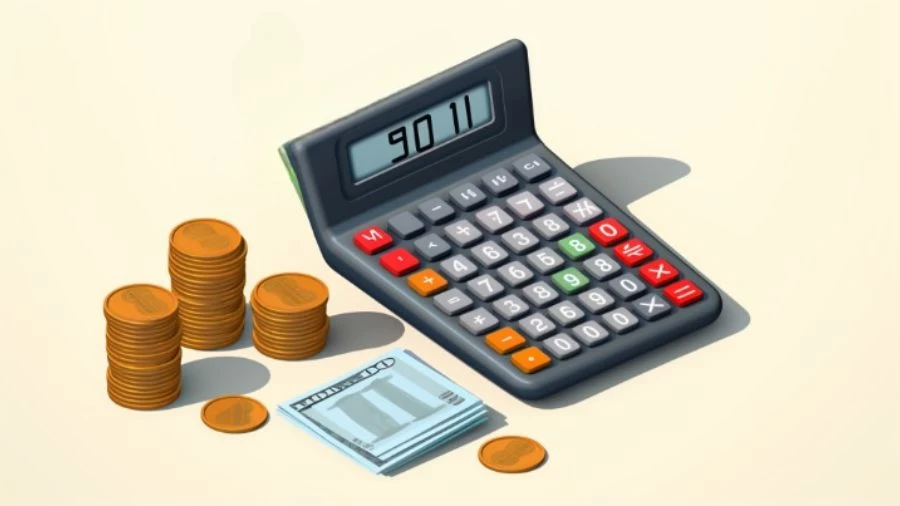
Best Budgeting Tips and Tricks
Start by identifying your financial goals, whether it's paying off debt, saving for a specific purpose, or managing your expenses as well as explore different budgeting techniques and choose the one that aligns with your lifestyle and goals.
Updated Oct 18, 2023
On This Page
How to Budget Money?
Creating and managing a budget is a straightforward process that helps you take control of your finances. First, calculate your monthly income, which includes your salary and any other income sources. Then, choose a budgeting method that works for you. A simple framework to get started is the 50/30/20 rule:
- Allocate up to 50% of your income for your needs, such as rent or mortgage, utilities, groceries, and other essential expenses.
- Set aside 30% of your income for your wants, which can be spent on entertainment, dining out, or non-essential purchases.
- Dedicate 20% of your income to savings and debt repayment, which can include building an emergency fund or paying off high-interest debt.
Once you've set up your budget, regularly track and manage it by reviewing your income, expenses, and savings goals. This helps you stay on top of your financial situation, reduce stress, and work towards your financial goals.
Best Budgeting Tips and Tricks
When it comes to managing your finances effectively, budgeting is a powerful tool. It allows you to take control of your money, plan for the future, and achieve your financial goals. We'll give some of the best budgeting tips and tricks to help you make the most of your budget, whether you're striving to save, reduce debt, or simply gain a better understanding of your spending habits. With these tips, you can manage on a more financially secure and stress-free journey.
Determine Your Budgeting Goals
When beginning your budgeting journey, it's essential to define your goals and motivations. Ask yourself why you're taking this financial step. Whether it's to tackle debt, cut down on expenses, or simply rein in your spending, having a clear understanding of your objectives will provide the motivation and focus needed to stick to your budget.
If you're budgeting as a couple, open communication about your shared financial goals is key to ensure both parties are aligned and working together towards a common financial future. Your "why" can be a powerful driving force to help you stay on track and achieve your desired financial outcomes.
Use Positive and Motivating Language
Changing the way you talk about budgeting can significantly impact your perspective and motivation. Avoid terms that feel restrictive or negative, like "budget," and instead use language that resonates with you, such as "spending plan." The terminology you use matters because it shapes your mindset.
Your spending plan, or budget, should be seen as a tool that empowers you to take charge of your finances, rather than something that constrains you. A positive and motivating approach to managing your money will make the process feel more empowering and less daunting, ultimately helping you stay committed to your financial goals.
Explore Various Budgeting Techniques
When it comes to budgeting, there's no one-size-fits-all approach. Just as there are various reasons to budget, there are also multiple methods to choose from. Some individuals prefer to meticulously track expenses daily by hand, while others opt for user-friendly budgeting apps. It's essential to explore and discover the budgeting technique that aligns with your lifestyle and financial goals.
Whether it's the 50/30/20 budget or the cash-based envelope system, research different methods, give one a try, and understand that the initial months can be challenging. If you find that a particular approach doesn't work for you, be open to exploring alternative options that better suit your needs and financial circumstances. Staying flexible and committed is key to effective budgeting.
Rank Your Expenses and Objectives
To create a successful budget, it's crucial to distinguish between your needs and wants. Prioritize your essential expenses like groceries, housing, and transportation, which are your needs. But remember that your financial goals, whether it's paying off debt or saving for retirement, are equally important. The main purpose of a budget is to ensure your money is allocated towards things that bring you contentment, pride, and align with your values.
A helpful guideline, like the 50/30/20 budget, can assist you in dividing your income effectively. This rule suggests allocating 50% of your income to needs, 30% to wants, and 20% to savings and debt, providing a structured approach to managing your expenses and objectives.
Allow for Unexpected Costs
It's essential to acknowledge that your budget won't always be flawless. Unexpected costs and occasional impulse purchases are bound to occur. However, you can prepare for these situations by allocating a portion of your budget for miscellaneous expenses and regularly contributing to an emergency fund.
This safety net ensures you can manage unforeseen circumstances, such as unexpected car repairs or emergencies, without relying on credit cards or loans, offering a sense of financial security and peace of mind.
Set Up Responsible Automation
Leveraging technology can simplify the budgeting process and minimize potential setbacks. Automate bill payments and savings transfers to ensure you consistently allocate funds without manual effort. Budgeting apps can help effortlessly monitor your spending.
However, it's crucial to periodically review your automated expenses to ensure they align with your current financial goals and priorities. For instance, you may identify unnecessary monthly subscriptions that you can eliminate, providing more control over your budget.
Review Your Budget Regularly
Regularly reviewing your budget is essential, as certain expenses may fluctuate or emerge infrequently, such as seasonal holiday gifts or occasional vehicle registration fees. Additionally, your income can vary from month to month.
Consistently monitoring your budget allows you to promptly address these fluctuations and make necessary adjustments. If you're managing a family budget, these periodic check-ins provide an opportunity to engage in financial discussions with your partner and ensure your budget remains aligned with your shared goals.
Best Budgeting Tips and Tricks - FAQs
1. Why should I create a budget?
Creating a budget helps you manage your finances, save for goals, and reduce financial stress.
2. What is the 50/30/20 rule for budgeting?
The 50/30/20 rule suggests allocating 50% of your income to needs, 30% to wants, and 20% to savings and debt repayment.
3. Can I change my budget if my financial situation changes?
Yes, your budget should adapt to your changing financial circumstances.
4. How often should I review my budget?
Regularly review your budget, at least once a month, to ensure it remains effective and adaptable.
5. Can budgeting apps make managing money easier?
Budgeting apps can streamline expense tracking, automate savings, and simplify managing your budget.




